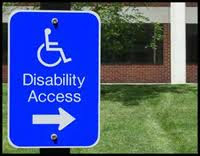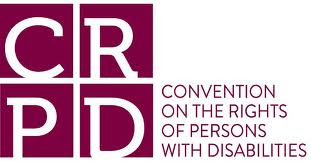[vc_row row_type=”row” use_row_as_full_screen_section=”no” type=”full_width” angled_section=”no” text_align=”left” background_image_as_pattern=”without_pattern” css_animation=””][vc_column][vc_column_text]December 5, 2013
From the Desk of Laura Bunker:
As I write this, a fierce wind is blowing outside, whipping the snow in circles, and driving it through the holes in our window screens. Yet I am able to sit by the fireplace and write in peace. Home is truly a shelter from the storm.
As we look back over this year, we thank you for your support. Thank you for reading our weekly UFI alerts, and for your encouraging words as we have opposed anti-family forces at the United Nations and state legislatures.
Our UFI team happily donates countless volunteer hours, but even our best efforts are limited without your financial support. This month we sincerely invite you to:
- Remember UFI in your “end-of-the-year” charitable giving. You could even put us on your monthly automatic donation list, either through Authorize.net or Paypal.
- Forward this email to 5 friends who care about preserving the Natural Family. Invite them to SIGN UP for our weekly educational alerts and help us grow our mailing list!
The Natural Family is the strongest shelter from the storms of life. However, as Ann Bailey explains in this week’s alert, there is a fierce wind blowing from the United Nations–a dangerous treaty that would expand abortion “rights,” undermine parental rights, and become the supreme law of the land.
Please read the alert below and contact your U.S. Senator, urging them NOT to ratify the CRPD treaty.
Thank you so much,
Laura Bunker
President, United Families International

Ann Bailey

As with most U.N. treaties, this treaty has a great sounding name, but questionable substance.

Advocates also claim that this treaty will have no negative impact on domestic law and that it is important for the U.S. and all countries to ratify this treaty by symbolically standing in solidarity against those nations who have less than stellar records. If symbolism is the goal, it is certainly a high price to pay – trading national sovereignty for symbolism.
Here are some basic reasons why U.S. ratification of the CRPD is a bad idea.
Sovereignty

Ratification of this treaty subjects nations to treaty monitoring bodies that are comprised of unelected and virtually unaccountable bureaucrats put in place by the U.N. to, every four years, scrutinize a country’s policies and actions to determine if they measure up to the commitments of the treaty.
We have witnessed, firsthand, these “compliance committees” at work as they badger countries, make unrealistic demands, and insert their own opinions and interpretations of treaty commitments. Therefore, all countries need to take great care when deciding whether to ratify such a treaty when its terms–or the interpretation of those terms by a treaty committee–may not conform to existing country laws or to prevalent social, cultural, and economic norms.
In addition, ratification of CRPD would have budgetary and debt implications. As Heritage Foundation points out: “U.N. treaties are always aimed directly at Americans’ wallets. This one is no different. The cost of enforcing it is unknown. Not only does the treaty fail to define who is disabled, but it also adds entitlements to whoever that might be.”
Parental Rights

The “best interests of the child” is an intentionally ambiguous phrase that allows government and various policy makers to substitute their own decisions for those of the parents. It forms the basis for a classic “government knows best” power grab. By claiming superior knowledge of what is the “best interests of the child” – perhaps citing so-called “experts” – the government inserts their will for the child over the will of parents and family.
According to the Home School Legal Defense Association, Article 25 of the treaty does not reiterate the crucial parental rights rules of earlier human rights treaties (e.g., the International Covenant on Civil and Political Rights or the International Covenant on Economic, Social, and Cultural Rights). By omitting this important parental rights language and then including “best interests of the child” language, the stage is set for infringement of parental rights.
Social Engineering

Also, the treaty doesn’t bother to define the word “disabilities;” referring to it instead as an “evolving concept.” Let us translate that term for you: “We will make it intentionally vague so that we can have “disabilities” mean whatever we want it to mean.” There was no definition for “disabilities” included in spite of the fact that during the 2006 negotiations, there was a constant plea from many delegations to develop one. Steven Groves offers this explanation: “Such ambiguity invites abuse by persons or groups who do not suffer from a recognized medical disability, yet seek resources and protection under the authority of the Convention.”
What can I do?
1) Contact your U.S. Senators and urge them to oppose the Convention on the Rights of Persons with Disabilities. You can do that by calling the U.S. Capitol switchboard at (202) 224-3121 and ask for your Senators or click here to find their direct phone number and email address. Urge your friends and family to do the same.
Your message can be as simple as the following:
“I urge you to oppose the UN Convention on the Rights of Persons with Disabilities. This treaty surrenders U.S. sovereignty to unelected UN bureaucrats and will threaten parental care of children with disabilities. Our nation already has laws to protect Americans with disabilities.”

Senator Harry Reid (D-Nevada)
Senator John McCain (R-Arizona)
Senator John Barrasso (R-Wyoming)
Senator Tom Harkin (D-Iowa)
There is still time to stop this treaty from advancing. Be sure to remind your Senators that offering amendments to the CRPD is not enough to neutralize a treaty that is superfluous at best and downright dangerous at worst.
Oppose the CRPD!
Ann Bailey is a longtime advocate for the family with a focus on UN and international policies.
[/vc_column_text][/vc_column][/vc_row][vc_row row_type=”row” use_row_as_full_screen_section=”no” type=”full_width” angled_section=”no” text_align=”left” background_image_as_pattern=”without_pattern” css_animation=””][vc_column][vc_empty_space height=”34px”][/vc_column][/vc_row]
